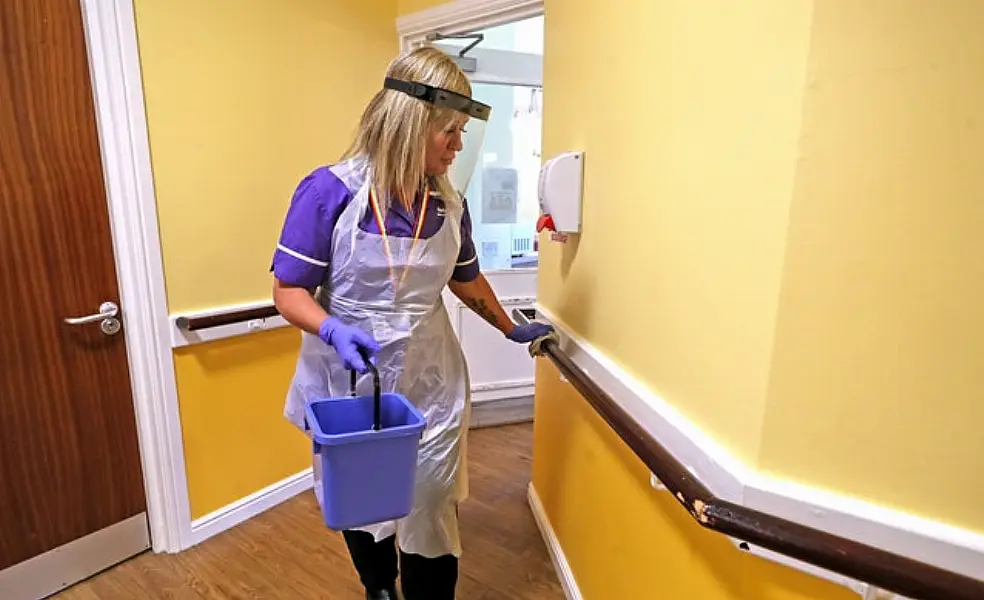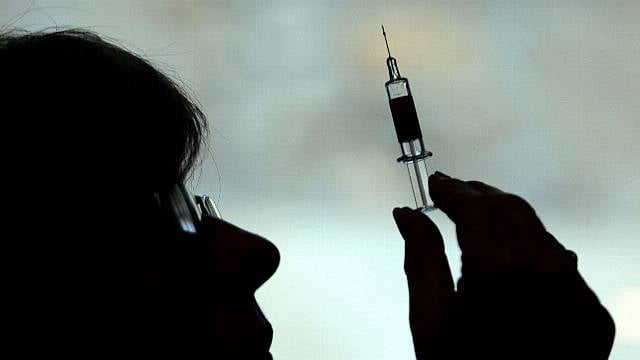The Bacillus Calmette–Guerin (BCG) vaccine will be trialled globally to 10,000 people after the injection was found to stimulate the immune system.
It would not be the ultimate solution but would instead help people fight off coronavirus until more effective vaccines are discovered.
The University of Exeter is leading the UK arm of the trial and will soon recruit healthcare staff and care home workers in the UK.
The study is co-ordinated by the Murdoch Children’s Research Institute in Melbourne, Australia, and has received more than 10 million US dollars (€8.5 million) from the Bill and Melinda Gates Foundation to allow its global expansion.
The Peter Sowerby Foundation has contributed funding to support the Exeter trial site.
The UK joins study centres in Australia, the Netherlands, Spain and Brazil in the largest trial of its kind.
Participants will be given either the BCG vaccine, which is currently given to more than 100 million babies worldwide each year to protect against tuberculosis, or a placebo injection.
BCG has been shown to boost immunity in a generalised way, which may offer some protection against Covid-19
In the UK, routine BCG vaccination was stopped in 2005 because of low rates of TB in the general population.
Professor John Campbell, of the University of Exeter Medical School, said: “Covid-19 has killed more than a million people globally, with well over 33 million people acquiring the disease, sometimes in its severest forms.
“BCG has been shown to boost immunity in a generalised way, which may offer some protection against Covid-19.
“We’re excited to be contributing to the large-scale, international study where we are seeking to establish whether the BCG vaccine could help protect people who are at risk of Covid-19.
“If it does, we could save lives by administering or topping up this readily available and cost-effective vaccination.”
Previous studies suggest that the BCG vaccine could reduce susceptibility to a range of infections caused by viruses including those similar to the novel coronavirus causing Covid-19.
Examining the mechanism by which this may work is part of the trial being conducted by the researchers.
The BCG vaccine boosts immunity by “training” the immune system to respond to other subsequent infections with greater intensity.
Researchers hope this improved “innate immunity” will buy crucial time to develop an effective and safe vaccine against Covid-19.
The trial is recruiting care and healthcare workers in the south west of England, who can attend clinics in Exeter.
Researchers are targeting professionals who work in fields with high exposure to Covid-19.

They are looking at whether the BCG vaccine reduces coronavirus infection or Covid-19 symptom severity.
Prof Campbell added: “People on the Covid-19 front line, including healthcare workers and care home workers, are particularly vulnerable to coronavirus infection.
“Up until now, care home workers have been overlooked by most research.
“The trial provides us with a great opportunity to offer potential help to this important group of individuals who are providing healthcare to some of our most vulnerable citizens in important community settings.
“I’d really encourage care home staff to join us, to help us find out if the BCG vaccine might provide a safe, widely available and cost-effective way to reduce the risk of Covid-19.”
– To find out about the trial visit https://www.exeter.ac.uk/brace







